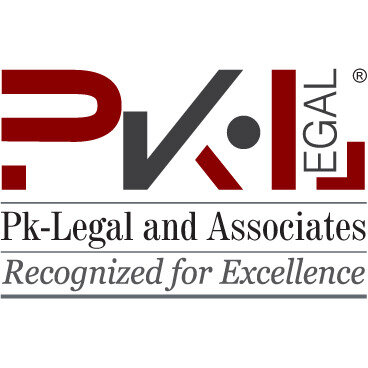Best Public-Private Partnerships (PPP) Lawyers in Islamabad
Share your needs with us, get contacted by law firms.
Free. Takes 2 min.
List of the best lawyers in Islamabad, Pakistan
About Public-Private Partnerships (PPP) Law in Islamabad, Pakistan
Public-Private Partnerships (PPP) in Islamabad, Pakistan refer to legal and financial arrangements where the government collaborates with private sector entities to design, build, finance, and operate public sector projects or services. PPPs are used to leverage the efficiency and expertise of the private sector for infrastructure development and service delivery in sectors such as transport, energy, health, education, and housing. In Islamabad, PPPs are governed by specific laws and frameworks to ensure transparency, accountability, and proper risk allocation between the parties involved.
Why You May Need a Lawyer
Legal advice is vital in any PPP arrangement due to the complexity, long-term obligations, and high value of projects. You may need a lawyer if you are:
- A private company or investor looking to participate in a PPP project in Islamabad
- A public sector official or government agency seeking guidance on legal processes for initiating or managing PPPs
- An international investor or consortium concerned about local regulations and protections
- Addressing disputes related to project delivery, financing, contract performance, or risk-sharing mechanisms
- Drafting, reviewing, or negotiating PPP agreements, risk allocation, or financing arrangements
- Responding to regulatory compliance issues regarding environmental, labor, or procurement laws
- Seeking advice on land acquisition, permits, or dispute resolution within the PPP context
A lawyer can help you navigate government procedures, protect your rights, and ensure your interests are secured throughout the lifecycle of a PPP project.
Local Laws Overview
The legal framework for PPPs in Islamabad is shaped by several federal and provincial laws, with special emphasis on the Public Private Partnership Authority Act, 2017 (PPP Act 2017) and its amendments. This Act establishes the Public Private Partnership Authority (P3A) at the federal level, tasked with regulating, monitoring, and promoting PPP projects across Pakistan, including Islamabad. Key aspects include:
- Project Identification and Approval: Projects must be identified by relevant authorities and undergo a structured approval process involving feasibility studies and value for money assessments.
- Mandatory Competitive Bidding: Procurement of private partners is usually based on a competitive, transparent bidding process to ensure fairness and accountability.
- Risk Allocation: Risks are allocated between the public and private partners based on capacity and ability to mitigate each risk type, including construction, operational, financial, and regulatory risks.
- Contractual Framework: The PPP Act describes the types of contracts (such as Build-Own-Operate, Build-Operate-Transfer, etc.) and the essential elements required in PPP agreements.
- Regulatory Oversight: The PPP Authority oversees the regulatory compliance, project progress, and dispute resolution mechanisms for all approved PPP projects.
- Dispute Resolution: Contracts typically include arbitration clauses, and disputes may be referred to local or international arbitration bodies, depending on the agreement.
Frequently Asked Questions
What is a Public-Private Partnership (PPP)?
A PPP is a legal and financial arrangement between a government entity and a private sector partner to deliver public services or infrastructure by sharing risks and resources.
Which law governs PPPs in Islamabad?
The main law is the Public Private Partnership Authority Act, 2017, along with its rules and guidance issued by the Public Private Partnership Authority (P3A).
What types of projects can be developed through PPPs in Islamabad?
Common sectors include roads, transport, energy, water supply, health, education, housing, and municipal services.
How is a private partner selected for a PPP project?
Private partners are usually selected through a transparent and competitive bidding process after public advertisement and pre-qualification.
What are the main risks in a PPP project?
Main risks include construction risk, financial risk, operational risk, force majeure, and regulatory risk. These are typically allocated between the partners contractually.
Is foreign investment allowed in PPP projects in Islamabad?
Yes, foreign companies can participate in PPP projects, subject to compliance with Pakistani investment and sector-specific regulations.
What happens if there is a dispute in a PPP contract?
PPP contracts usually include provisions for dispute resolution, such as negotiation, mediation, and arbitration, including reference to Pakistani courts or international arbitration bodies.
What is the role of the Public Private Partnership Authority (P3A)?
P3A oversees, supports, and regulates PPP projects, ensuring legal compliance, transparency, and value for money in all federal PPP projects, including those in Islamabad.
How long do PPP projects typically last?
PPP projects often have terms ranging from 10 to 30 years, depending on the nature, size, and complexity of the infrastructure or service involved.
Can PPP projects include land acquisition or involve public land?
Yes, many PPP projects involve use of public land or require land acquisition, which must be undertaken in accordance with Pakistani land acquisition laws and regulatory approvals.
Additional Resources
For further guidance or official support, you may contact or consult:
- Public Private Partnership Authority (P3A), Government of Pakistan
- Planning and Development Department, Government of Punjab (for projects with provincial crossover)
- Islamabad Capital Territory Administration (for local approvals and compliance)
- Board of Investment (BOI), Government of Pakistan (especially for foreign investment facilitation)
- Pakistan Engineering Council (for infrastructure-related technical approvals)
- Pakistan Bar Association (for finding qualified PPP lawyers)
- Relevant sectoral ministries, such as Ministry of Communication, Health, Education, or Energy
Next Steps
If you are considering participating in a PPP project or need legal support for an ongoing arrangement in Islamabad, take these steps:
- Identify the exact nature and scope of your PPP project or interest
- Gather all relevant documentation, business plans, and feasibility studies
- Contact a specialist PPP lawyer with experience in Pakistani law
- Arrange a consultation to discuss your goals, regulatory requirements, and potential risks
- Work with your lawyer to prepare or review proposals, contracts, and compliance documents
- Engage with relevant government authorities and follow necessary approval processes
Legal support is essential for protecting your interests, ensuring regulatory compliance, and navigating the unique challenges of PPP projects in Islamabad, Pakistan.
Lawzana helps you find the best lawyers and law firms in Islamabad through a curated and pre-screened list of qualified legal professionals. Our platform offers rankings and detailed profiles of attorneys and law firms, allowing you to compare based on practice areas, including Public-Private Partnerships (PPP), experience, and client feedback.
Each profile includes a description of the firm's areas of practice, client reviews, team members and partners, year of establishment, spoken languages, office locations, contact information, social media presence, and any published articles or resources. Most firms on our platform speak English and are experienced in both local and international legal matters.
Get a quote from top-rated law firms in Islamabad, Pakistan — quickly, securely, and without unnecessary hassle.
Disclaimer:
The information provided on this page is for general informational purposes only and does not constitute legal advice. While we strive to ensure the accuracy and relevance of the content, legal information may change over time, and interpretations of the law can vary. You should always consult with a qualified legal professional for advice specific to your situation.
We disclaim all liability for actions taken or not taken based on the content of this page. If you believe any information is incorrect or outdated, please contact us, and we will review and update it where appropriate.

















